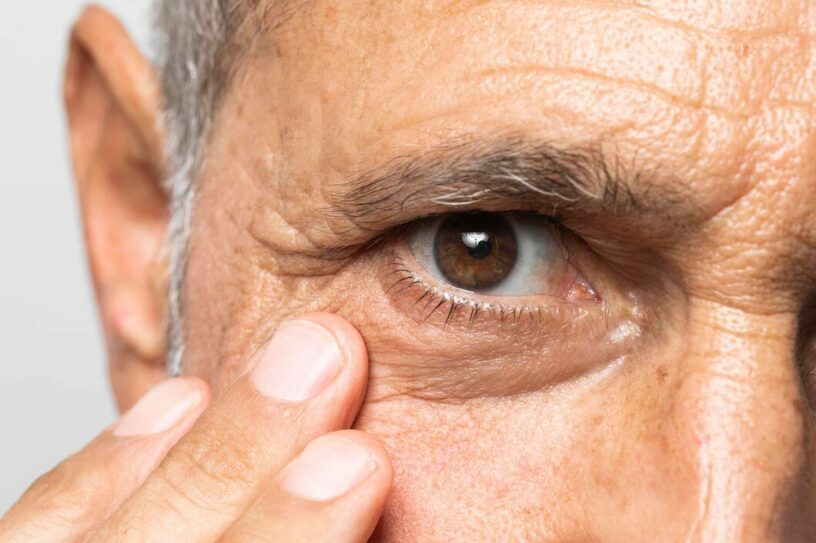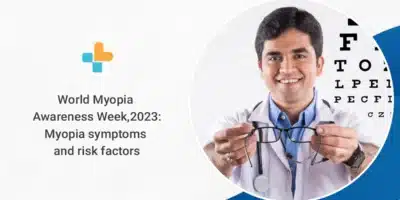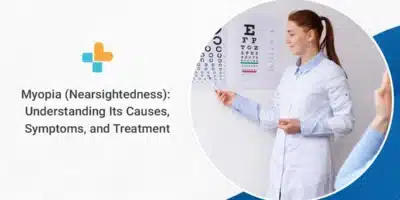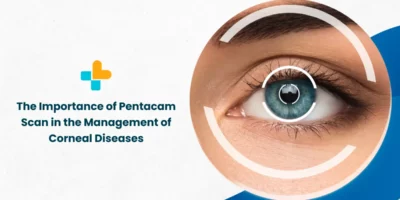Did you know that India is called the Diabetes Capital of the world?
Indians are more prone to have diabetes – our systems are more resistant to insulin, the hormone which influences blood sugar levels. When the sugar levels in blood are not in control, it results in diabetes.
While diabetes on its own, has harmful effects on the functioning of our body, there are also many side effects which sometimes cause irreparable damage. One of such side effects is that of vision problems. Specifically, diabetes can also cause damage to the retina in the eye.
Retina is the part of the eye where light falls to form the image that we see. This condition, in which a diabetic person has vision problems because of the damage to the retina is called diabetic retinopathy.
The different ways diabetes affects the retina
What happens in diabetes is that the glucose levels in your blood go up. So, there is a change in the blood flow. Due to these changes either some organs are deprived of enough blood supply or there is excess supply that leads to leaks or bursting of blood vessels.
Due to this problem in blood circulation, the retina gets affected adversely and this results in diabetic retinopathy.
There are two ways the retina gets affected by diabetes.
- Blurry vision
Retinal blood vessels are responsible for circulation of blood to the retina. In a Type 1 Diabetes patient, these blood vessels become weakened. The result of the weakening of blood vessels is leakage of fluid into the retina.
Leakages cause small blood clots to form. These cause vision problems such as blurriness, seeing spots or floaters. This condition is also called Non- proliferative diabetic retinopathy.
- Loss of vision
In more severe cases, the blood circulation in the retina becomes very low. This lack of oxygen causes new blood vessels to grow from the retina. However, these blood vessels too start leaking and cause great damage to the retina. In many cases, glaucoma or scarring of the retinal tissue is also observed.
The fluids that accumulate in the retina can also put a lot of pressure on the eye and damage the optic nerve.
This condition, also called proliferative diabetic retinopathy can cause vision loss and if it is left untreated, it can lead to blindness.
Treatment Options for Diabetic Retina Disease
Before understanding what the treatment options can be, the extent of damage has to be assessed.
Retina disease has a slow progression, and hence, sometimes the mild symptoms go unnoticed. Here are some symptoms you can look out for:
- Trouble seeing at night
- Blurry vision
- Seeing dark spots or floaters
If the onset of retina disease is so slow, how does a doctor diagnose that it is what it is?
A thorough eye check-up including a retina examination will help the doctor understand the extent of retina disease. This complete eye check-up will need to include dilation of the eye. The process takes about 2-3 hours which involves dilating the eye using eye drops administered at regular intervals during this time.
Once the eye is completely dilated, the doctor checks it for all the different conditions according to your symptoms.
Based on the eye exam and the severity of the disease, the doctor will suggest the next steps.
The treatment options vary from a simple change in glasses and medication to surgery to make the necessary corrections.
However, there is one important and simple step you can take to keep your eyes healthy and avoid the damage from a retina disease.
Keeping your diabetes in check.
When sugar levels are kept under control, the damage to the eye also is minimal.
Some simple things you can follow are:
- Maintain a balanced diet
- Avoid eating too many carbs and focus on getting enough fibre, vitamins and minerals from your diet- basically, eat more vegetables and fruits
- Snacks which are deep fried or contain high concentration of sugars are bad for you
- Exercise everyday
- Smoking and consuming alcohol directly affects the sugar levels. Practice self-control to keep away from these habits
- Take your medication on time
- Go for a diabetes check up every three months to monitor your sugar levels
- For your eyes, make sure you visit the ophthalmologist at least once a year for a detailed examination. This will rule out chances of serious damage to your eyes.
Click the image below to know if you are at risk of diabetes.
Ayu Health have the full range of services to help you manage your diabetes. Diagnostic tests, experienced doctors, plethora of healthcare services such as minor treatments to major surgeries are all available at fixed costs in the best hospitals around you. Call 08069489584 to know more!
Our Hospital Locations
Ophthalmology Surgery Hospitals in Chandigarh | Ophthalmology Surgery Hospitals in Bangalore | Ophthalmology Surgery Hospitals in Jaipur | Ophthalmology Surgery Hospitals in NCR | Ophthalmology Surgery Hospitals in Hyderabad
Our Doctors
Ophthalmology Surgery Doctors in Chandigarh | Ophthalmology Surgery Doctors in Bangalore | Ophthalmology Surgery Doctors in Jaipur | Ophthalmology Surgery Doctors in NCR | Ophthalmology Surgery Doctors in Hyderabad
About the Author

Dr. S. Goel
Dr. S. Goel is a renowned Internal Medicine Specialist currently practicing at Ayu Health, Bangalore. He is a Specialist in Internal Medicine, Diabetes HTN, Paediatric Care, and Family Medicine.





